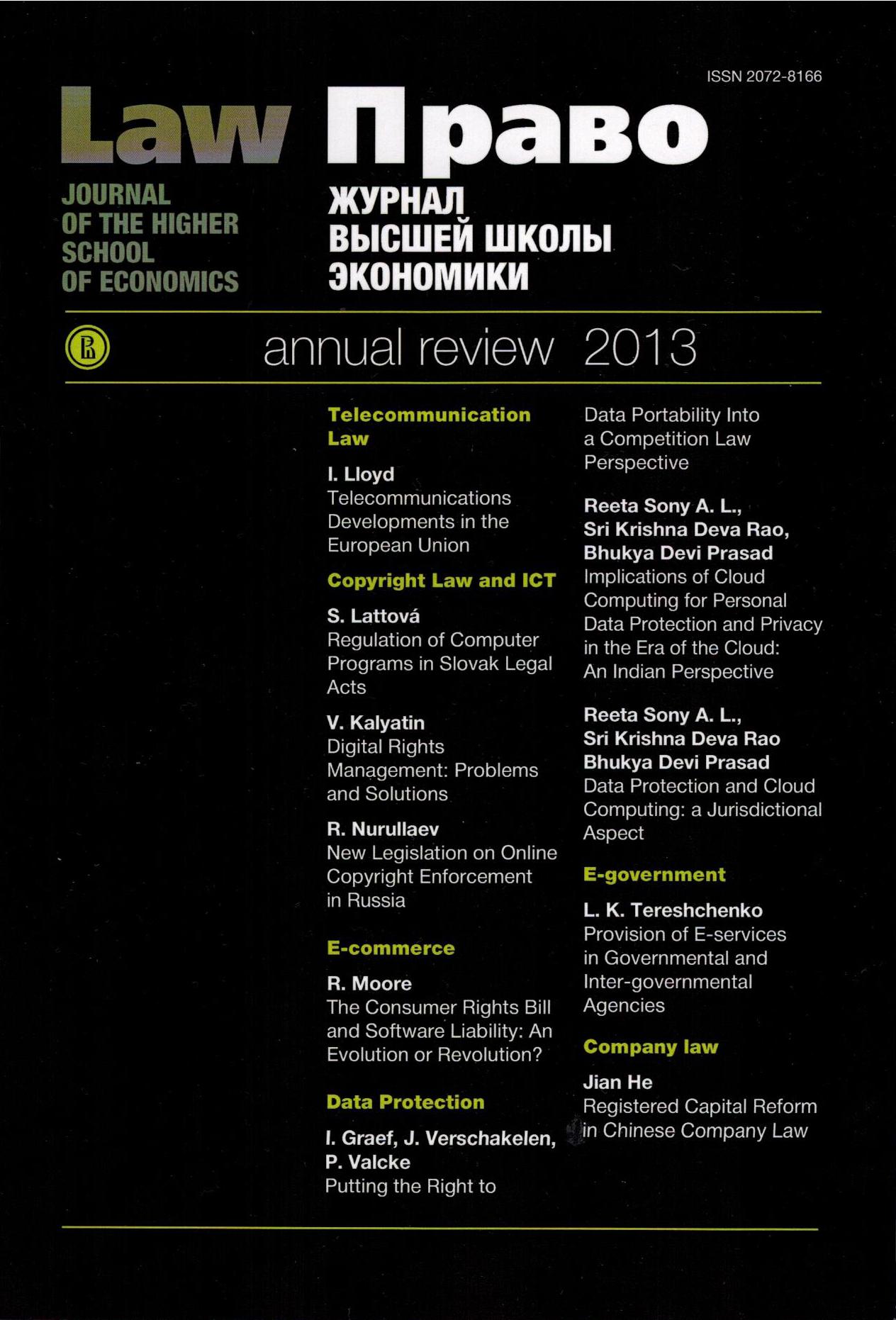Telecommunications Developments in the European Union
Аннотация
Lloyd Ian - Senior research fellow in the Institute for Law and the Web (iLaws) within the University of South- ampton. Address: University of Southampton, United Kingdom. E-mail: I.Lloyd@soton.ac.uk.
The telecommunications sector has undergone massive changes in the past 30 years. We have moved from an era where access to at least private telecommunications was the preserve of the minority to the situation today where the mobile phone is an almost omnipresent utility. As an ITU Working Paper states, 'The Future is Mobile'. The shift from landline to mobile technology raises many issues but more recent developments pose even more significant challenges to established forms of regulation. The twenty first century has seen the emergence of, so called, 'over the top (OTT) services such as SKYPE in the field of voice communications and What not' in the area of text messaging. These services are attaining larger and larger market shares and yet their status in terms of traditional forms of communications regulation is uncertain. It is unclear how such services can or should be regulated by national agencies.
Linked in some respects is the notion of net neutrality. This has been seen as one of the corner stones of the Internet. It requires that all forms of traffic, whether voice, data or video be treated equally by network providers. But some forms of communication require more bandwidth than others. The question whether new business models might legitimately emerge to focus on and offer preferential treatment to certain forms of communications does need to be addressed as a matter of urgency.
The electronic communications sector is living in interesting times. Old models are broken but what can replace them?


















